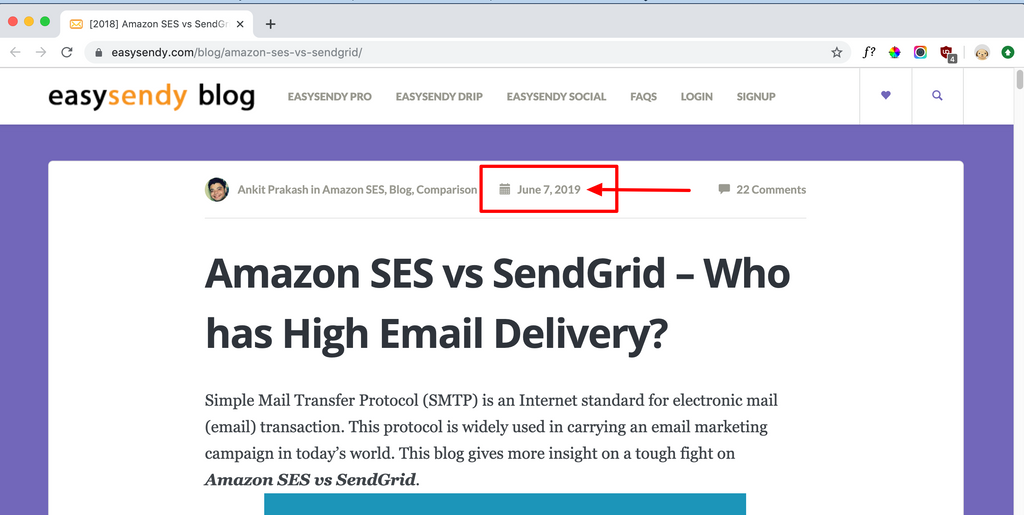Blogwashing.
This is a Guest Post by easyBQ.
Have anything interesting? Submit it here.
I was researching the feasibility of using AWS Pinpoint for an app my team is working on. A particular Google search link catches my eye. The link says 2018 but the blog is dated June 7, 2019. This leads me down the rabbit hole.

I click the link which takes me to the blog. As expected the blog appears to have been published on June 7, 2019.

I scroll to the end. The oldest comments are from 2016. Some serious time-travel was involved here.

I examine the source. The blog appears to have been published/updated in 2019. The title was prefixed with '2018' (pink arrow). This was probably because the author re-dated the blog in 2018. But the main giveaways are the image links (green arrows) which correctly carbon-date the blog to have first appeared in 2016.

Apparently the blog was first published in 2016 and 're-dated' multiple times to appear like it was freshly published. Why do this? A bit of Googling revealed this to be an age old scammy SEO tactic used by bloggers to fake 'blog freshness'. Google likes fresh and up to date content. The easiest way to do this is just change the blog date.
It's almost 2020. This particular blog appears on page 1 of search results. So this SEO trick still works. The best part --- Google knows about this.
A full screenshot of the the blog as on 8-Nov-2019 can be found here.
====== UPDATE 16-March-2020 ======
It's the year 2020. Google still seems to allow such scammy practices. The dubious blog post that was referenced in this article changed the year to 2020 to make it look even new. The content however has zero changes.

A full screenshot of the the blog as on 16-March-2020 can be found here. No wonder Google Search has lost its credibility while DuckDuckGo has better usability.
- - -
